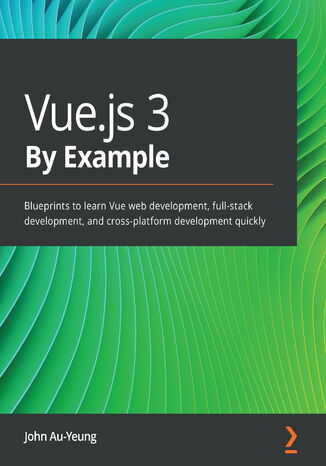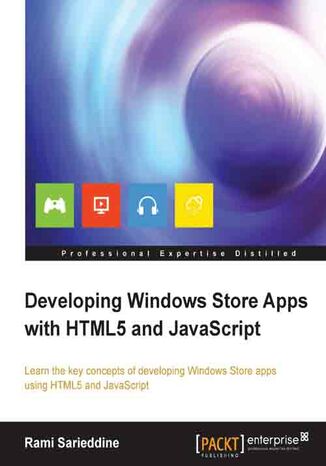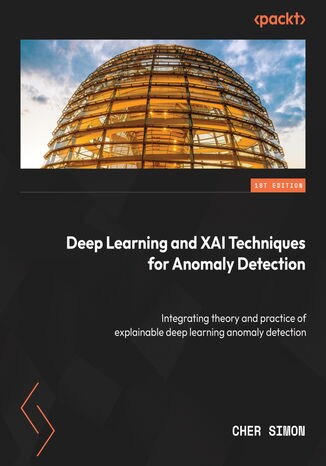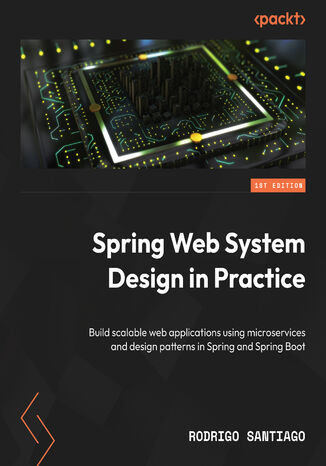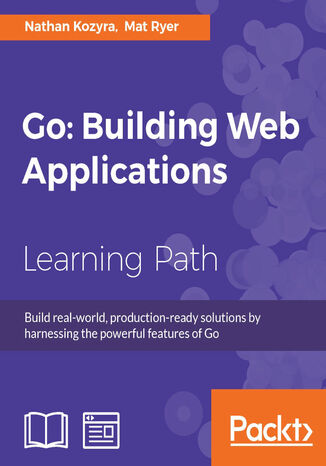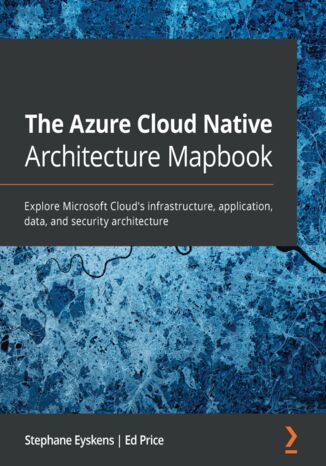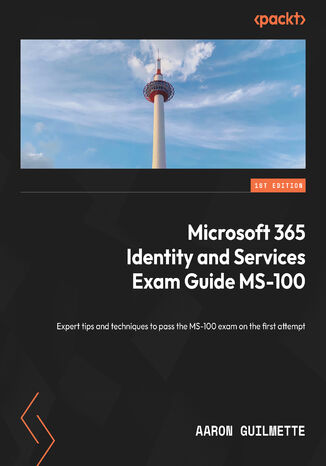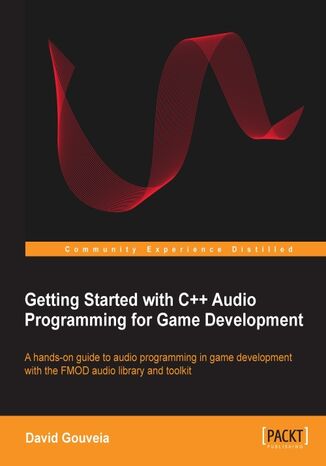Kategorie
Ebooki
-
Biznes i ekonomia
- Bitcoin
- Bizneswoman
- Coaching
- Controlling
- E-biznes
- Ekonomia
- Finanse
- Giełda i inwestycje
- Kompetencje osobiste
- Komputer w biurze
- Komunikacja i negocjacje
- Mała firma
- Marketing
- Motywacja
- Multimedialne szkolenia
- Nieruchomości
- Perswazja i NLP
- Podatki
- Polityka społeczna
- Poradniki
- Prezentacje
- Przywództwo
- Public Relation
- Raporty, analizy
- Sekret
- Social Media
- Sprzedaż
- Start-up
- Twoja kariera
- Zarządzanie
- Zarządzanie projektami
- Zasoby ludzkie (HR)
-
Dla dzieci
-
Dla młodzieży
-
Edukacja
-
Encyklopedie, słowniki
-
E-prasa
- Architektura i wnętrza
- BHP
- Biznes i Ekonomia
- Dom i ogród
- E-Biznes
- Ekonomia i finanse
- Ezoteryka
- Finanse
- Finanse osobiste
- Firma
- Fotografia
- Informatyka
- Kadry i płace
- Kobieca
- Komputery, Excel
- Księgowość
- Kultura i literatura
- Naukowe i akademickie
- Ochrona środowiska
- Opiniotwórcze
- Oświata
- Podatki
- Podróże
- Psychologia
- Religia
- Rolnictwo
- Rynek książki i prasy
- Transport i Spedycja
- Zdrowie i uroda
-
Historia
-
Informatyka
- Aplikacje biurowe
- Bazy danych
- Bioinformatyka
- Biznes IT
- CAD/CAM
- Digital Lifestyle
- DTP
- Elektronika
- Fotografia cyfrowa
- Grafika komputerowa
- Gry
- Hacking
- Hardware
- IT w ekonomii
- Pakiety naukowe
- Podręczniki szkolne
- Podstawy komputera
- Programowanie
- Programowanie mobilne
- Serwery internetowe
- Sieci komputerowe
- Start-up
- Systemy operacyjne
- Sztuczna inteligencja
- Technologia dla dzieci
- Webmasterstwo
-
Inne
-
Języki obce
-
Kultura i sztuka
-
Lektury szkolne
-
Literatura
- Antologie
- Ballada
- Biografie i autobiografie
- Dla dorosłych
- Dramat
- Dzienniki, pamiętniki, listy
- Epos, epopeja
- Esej
- Fantastyka i science-fiction
- Felietony
- Fikcja
- Humor, satyra
- Inne
- Klasyczna
- Kryminał
- Literatura faktu
- Literatura piękna
- Mity i legendy
- Nobliści
- Nowele
- Obyczajowa
- Okultyzm i magia
- Opowiadania
- Pamiętniki
- Podróże
- Poemat
- Poezja
- Polityka
- Popularnonaukowa
- Powieść
- Powieść historyczna
- Proza
- Przygodowa
- Publicystyka
- Reportaż
- Romans i literatura obyczajowa
- Sensacja
- Thriller, Horror
- Wywiady i wspomnienia
-
Nauki przyrodnicze
-
Nauki społeczne
-
Podręczniki szkolne
-
Popularnonaukowe i akademickie
- Archeologia
- Bibliotekoznawstwo
- Filmoznawstwo
- Filologia
- Filologia polska
- Filozofia
- Finanse i bankowość
- Geografia
- Gospodarka
- Handel. Gospodarka światowa
- Historia i archeologia
- Historia sztuki i architektury
- Kulturoznawstwo
- Lingwistyka
- Literaturoznawstwo
- Logistyka
- Matematyka
- Medycyna
- Nauki humanistyczne
- Pedagogika
- Pomoce naukowe
- Popularnonaukowa
- Pozostałe
- Psychologia
- Socjologia
- Teatrologia
- Teologia
- Teorie i nauki ekonomiczne
- Transport i spedycja
- Wychowanie fizyczne
- Zarządzanie i marketing
-
Poradniki
-
Poradniki do gier
-
Poradniki zawodowe i specjalistyczne
-
Prawo
- BHP
- Historia
- Kodeks drogowy. Prawo jazdy
- Nauki prawne
- Ochrona zdrowia
- Ogólne, kompendium wiedzy
- Podręczniki akademickie
- Pozostałe
- Prawo budowlane i lokalowe
- Prawo cywilne
- Prawo finansowe
- Prawo gospodarcze
- Prawo gospodarcze i handlowe
- Prawo karne
- Prawo karne. Przestępstwa karne. Kryminologia
- Prawo międzynarodowe
- Prawo międzynarodowe i zagraniczne
- Prawo ochrony zdrowia
- Prawo oświatowe
- Prawo podatkowe
- Prawo pracy i ubezpieczeń społecznych
- Prawo publiczne, konstytucyjne i administracyjne
- Prawo rodzinne i opiekuńcze
- Prawo rolne
- Prawo socjalne, prawo pracy
- Prawo Unii Europejskiej
- Przemysł
- Rolne i ochrona środowiska
- Słowniki i encyklopedie
- Zamówienia publiczne
- Zarządzanie
-
Przewodniki i podróże
- Afryka
- Albumy
- Ameryka Południowa
- Ameryka Środkowa i Północna
- Australia, Nowa Zelandia, Oceania
- Austria
- Azja
- Bałkany
- Bliski Wschód
- Bułgaria
- Chiny
- Chorwacja
- Czechy
- Dania
- Egipt
- Estonia
- Europa
- Francja
- Góry
- Grecja
- Hiszpania
- Holandia
- Islandia
- Litwa
- Łotwa
- Mapy, Plany miast, Atlasy
- Miniprzewodniki
- Niemcy
- Norwegia
- Podróże aktywne
- Polska
- Portugalia
- Pozostałe
- Przewodniki po hotelach i restauracjach
- Rosja
- Rumunia
- Słowacja
- Słowenia
- Szwajcaria
- Szwecja
- Świat
- Turcja
- Ukraina
- Węgry
- Wielka Brytania
- Włochy
-
Psychologia
- Filozofie życiowe
- Kompetencje psychospołeczne
- Komunikacja międzyludzka
- Mindfulness
- Ogólne
- Perswazja i NLP
- Psychologia akademicka
- Psychologia duszy i umysłu
- Psychologia pracy
- Relacje i związki
- Rodzicielstwo i psychologia dziecka
- Rozwiązywanie problemów
- Rozwój intelektualny
- Sekret
- Seksualność
- Uwodzenie
- Wygląd i wizerunek
- Życiowe filozofie
-
Religia
-
Sport, fitness, diety
-
Technika i mechanika
Audiobooki
-
Biznes i ekonomia
- Bitcoin
- Bizneswoman
- Coaching
- Controlling
- E-biznes
- Ekonomia
- Finanse
- Giełda i inwestycje
- Kompetencje osobiste
- Komunikacja i negocjacje
- Mała firma
- Marketing
- Motywacja
- Nieruchomości
- Perswazja i NLP
- Podatki
- Polityka społeczna
- Poradniki
- Prezentacje
- Przywództwo
- Public Relation
- Sekret
- Social Media
- Sprzedaż
- Start-up
- Twoja kariera
- Zarządzanie
- Zarządzanie projektami
- Zasoby ludzkie (HR)
-
Dla dzieci
-
Dla młodzieży
-
Edukacja
-
Encyklopedie, słowniki
-
E-prasa
-
Historia
-
Informatyka
-
Inne
-
Języki obce
-
Kultura i sztuka
-
Lektury szkolne
-
Literatura
- Antologie
- Ballada
- Biografie i autobiografie
- Dla dorosłych
- Dramat
- Dzienniki, pamiętniki, listy
- Epos, epopeja
- Esej
- Fantastyka i science-fiction
- Felietony
- Fikcja
- Humor, satyra
- Inne
- Klasyczna
- Kryminał
- Literatura faktu
- Literatura piękna
- Mity i legendy
- Nobliści
- Nowele
- Obyczajowa
- Okultyzm i magia
- Opowiadania
- Pamiętniki
- Podróże
- Poezja
- Polityka
- Popularnonaukowa
- Powieść
- Powieść historyczna
- Proza
- Przygodowa
- Publicystyka
- Reportaż
- Romans i literatura obyczajowa
- Sensacja
- Thriller, Horror
- Wywiady i wspomnienia
-
Nauki przyrodnicze
-
Nauki społeczne
-
Popularnonaukowe i akademickie
-
Poradniki
-
Poradniki zawodowe i specjalistyczne
-
Prawo
-
Przewodniki i podróże
-
Psychologia
- Filozofie życiowe
- Komunikacja międzyludzka
- Mindfulness
- Ogólne
- Perswazja i NLP
- Psychologia akademicka
- Psychologia duszy i umysłu
- Psychologia pracy
- Relacje i związki
- Rodzicielstwo i psychologia dziecka
- Rozwiązywanie problemów
- Rozwój intelektualny
- Sekret
- Seksualność
- Uwodzenie
- Wygląd i wizerunek
- Życiowe filozofie
-
Religia
-
Sport, fitness, diety
-
Technika i mechanika
Kursy video
-
Bazy danych
-
Big Data
-
Biznes, ekonomia i marketing
-
Cyberbezpieczeństwo
-
Data Science
-
DevOps
-
Dla dzieci
-
Elektronika
-
Grafika/Wideo/CAX
-
Gry
-
Microsoft Office
-
Narzędzia programistyczne
-
Programowanie
-
Rozwój osobisty
-
Sieci komputerowe
-
Systemy operacyjne
-
Testowanie oprogramowania
-
Urządzenia mobilne
-
UX/UI
-
Web development
-
Zarządzanie
Podcasty
With its huge ecosystem and wide adoption, Vue is one of the leading frameworks thanks to its ease of use when developing applications. However, it can get challenging for aspiring Vue.js developers to make sense of the ecosystem and build meaningful applications.This book will help you understand how you can leverage Vue effectively to develop impressive apps quickly using its latest version – Vue 3.0.The book takes an example-based approach to help you get to grips with the basics of Vue 3 and create a simple application by exploring features such as components and directives. You'll then enhance your app building skills by learning how to test the app with Jest and Vue Test Utils. As you advance, you'll understand how to write non-web apps with Vue 3, create cross-platform desktop apps with the Electron plugin, and build a multi-purpose mobile app with Vue and Ionic. You'll also be able to develop web apps with Vue 3 that interact well with GraphQL APIs. Finally, you'll build a chat app that performs real-time communication using Vue 3 and Laravel.By the end of this Vue.js book, you'll have developed the skills you need to build real-world apps using Vue 3 by working through a range of projects.
Windows 8 has already been launched and been installed on millions of devices while the store is getting populated with apps, and soon enough everyone will want a Windows Store app. So start now and learn how to develop apps for Windows 8 using HTML5, CSS3, and JavaScript and you will be killing two birds with one stone by getting introduced to important features in HTML5 and CSS3 at the same time. You will gain the advantage of utilizing your web development skills to transform your website into an app or the other way round.Developing Windows Store Apps with HTML5 and JavaScript is a practical, hands-on guide that covers the basic and important features of a Windows Store App along with code examples which will show you how to develop these features, all the while learning some of the new features in HTML5 and CSS3 which you can utilize in other areas of development.This book starts with the new features in HTML5 and CSS3 that are incorporated with Windows 8 development, and then moves on to creating a blank Windows Store app and add features to it as we move through the chapters till we package the app and make it ready for publishing. Finally, we will have a look at how similar it is to develop the same app with XAML.You will also learn how to add and use new controls dedicated for Windows 8 and then see how to fetch data for the app and bind it to the controls. We will also take a look at making the app adapt to change in screen sizes and rotation as well as how to make the app live with tiles and allow users to sign in using their email accounts. Also you will learn how to add an app bar, and lastly you learn how to finalize the app and publish it. If you want to leverage your web development skills and utilize it in developing for Windows 8, then you came to the right place. Developing Windows Store Apps with HTML5 and JavaScript is packed with examples and screenshots which will make it easy for you to implement all the things you learned throughout the book.
Despite promising advances, the opaque nature of deep learning models makes it difficult to interpret them, which is a drawback in terms of their practical deployment and regulatory compliance.Deep Learning and XAI Techniques for Anomaly Detection shows you state-of-the-art methods that’ll help you to understand and address these challenges. By leveraging the Explainable AI (XAI) and deep learning techniques described in this book, you’ll discover how to successfully extract business-critical insights while ensuring fair and ethical analysis.This practical guide will provide you with tools and best practices to achieve transparency and interpretability with deep learning models, ultimately establishing trust in your anomaly detection applications. Throughout the chapters, you’ll get equipped with XAI and anomaly detection knowledge that’ll enable you to embark on a series of real-world projects. Whether you are building computer vision, natural language processing, or time series models, you’ll learn how to quantify and assess their explainability.By the end of this deep learning book, you’ll be able to build a variety of deep learning XAI models and perform validation to assess their explainability.
Rodrigo Santiago, Shalini Goyal
Software system design goes beyond just writing code—it requires a structured approach to translating real-world requirements into scalable, maintainable solutions. With Rodrigo Santiago’s hands-on mentoring style and Java Spring expertise, he makes system design accessible to developers at all levels.Spring System Design in Practice guides you through building robust software architectures with Spring. From breaking down complex business needs into actionable use cases to implementing services using Spring Boot, this book equips you with the tools and best practices needed for developing secure, high-performance applications. You'll explore inter-service communication, security, and aspect-oriented programming to streamline development. Covering microservices architecture, the book demonstrates how to create self-configuring, resilient, and event-driven services that integrate seamlessly into the cloud. Through hands-on experience, you'll apply best practices to enhance reliability and scalability while tackling complex challenges such as state management, resilience patterns, concurrency issues, and distributed transactions—including bottlenecks related to asynchronous and reactive programming.By the end of this book, you'll have the confidence to analyze system requirements and design well-structured, scalable architectures.
Go: Building Web Applications. Building Web Applications
Go is an open source programming language that makes it easy to build simple, reliable, and efficient software. It is a statically typed language with syntax loosely derived from that of C, adding garbage collection, type safety, some dynamic-typing capabilities, additional built-in types such as variable-length arrays and key-value maps, and a large standard library.This course starts with a walkthrough of the topics most critical to anyone building a new web application. Whether it’s keeping your application secure, connecting to your database, enabling token-based authentication, or utilizing logic-less templates, this course has you covered. Scale, performance, and high availability lie at the heart of the projects, and the lessons learned throughout this course will arm you with everything you need to build world-class solutions. It will also take you through the history of concurrency, how Go utilizes it, how Go differs from other languages, and the features and structures of Go's concurrency core. It will make you feel comfortable designing a safe, data-consistent, and high-performance concurrent application in Go.This course is an invaluable resource to help you understand Go's powerful features to build simple, reliable, secure, and efficient web applications.
Azure offers a wide range of services that enable a million ways to architect your solutions. Complete with original maps and expert analysis, this book will help you to explore Azure and choose the best solutions for your unique requirements.Starting with the key aspects of architecture, this book shows you how to map different architectural perspectives and covers a variety of use cases for each architectural discipline. You'll get acquainted with the basic cloud vocabulary and learn which strategic aspects to consider for a successful cloud journey. As you advance through the chapters, you'll understand technical considerations from the perspective of a solutions architect. You'll then explore infrastructure aspects, such as network, disaster recovery, and high availability, and leverage Infrastructure as Code (IaC) through ARM templates, Bicep, and Terraform. The book also guides you through cloud design patterns, distributed architecture, and ecosystem solutions, such as Dapr, from an application architect's perspective. You'll work with both traditional (ETL and OLAP) and modern data practices (big data and advanced analytics) in the cloud and finally get to grips with cloud native security.By the end of this book, you'll have picked up best practices and more rounded knowledge of the different architectural perspectives.
This book serves as a comprehensive guide to prepare you for the Microsoft Identity and Services exam, which focuses on the core identity and security aspects of a Microsoft 365 tenant. The exam MS-100 tests your proficiency in Azure AD authentication types, user management roles, access management, and workload applications.This book follows the published MS-100 blueprint, which covers identity and identity synchronization concepts, administrative roles, and crucial security topics such as self-service password reset, Azure AD password protection, and multifactor authentication. You’ll gain insights into application and authentication concepts, including OAuth application request management, enterprise application configuration, the benefits of Azure AD Application Proxy, and deploying Microsoft 365 apps.The book also delves into passwordless sign-in methods and provides overviews of configuring Exchange Online, Microsoft Teams, SharePoint Online, and OneDrive for Business in both cloud-only and hybrid deployments. You’ll be able to assess your knowledge retention at the end of each chapter.By the end of this MS-100 study guide, you’ll have built the knowledge and skills to pass the MS-100 exam and be able to ensure thorough preparation with the help of practice exam questions.
David Gouveia, David da L Gouveia
Audio plays a fundamental role in video games. From music to sound effects or dialogue, it helps to reinforce the experience, convey the mood, and give feedback to the player. Presently, many games have achieved commercial success by incorporating game sounds that have enhanced the user experience. You can achieve this in your games with the help of the FMOD library. This book provides you with a practical guide to implementing the FMOD toolkit in your games.Getting Started with C++ Audio Programming for Game Developers is a quick and practical introduction to the most important audio programming topics that any game developer is expected to know. Whether you need to play only a few audio files or you intend to design a complex audio simulation, this book will help you get started enhancing your game with audio programs.Getting Started with C++ Audio Programming for Game Developers covers a broad range of topics – from loading and playing audio files to simulating sounds within a virtual environment and implementing interactive sounds that react to events in the game.The book starts off with an explanation of the fundamental audio concepts, after which it proceeds to explain how to use the FMOD Ex library, how to implement a 3D audio simulation, how to use the FMOD Designer toolkit, and how best to work with multi-layered sounds with complex behaviors attached to them. The final part of the book deals with working with audio at a much lower level by manipulating audio data directly.This book will provide you with a good foundation so that you can successfully implement audio into your games and begin pursuing other advanced topics in audio programming with confidence.

